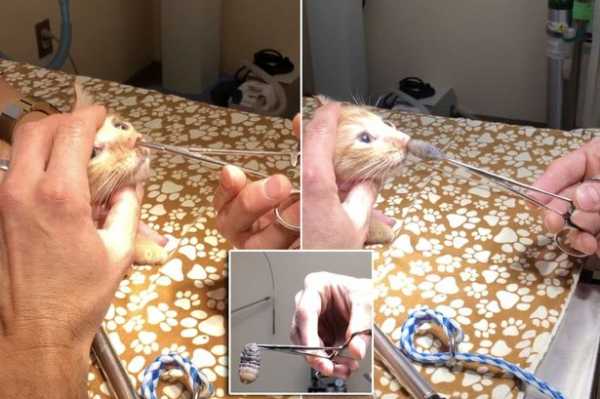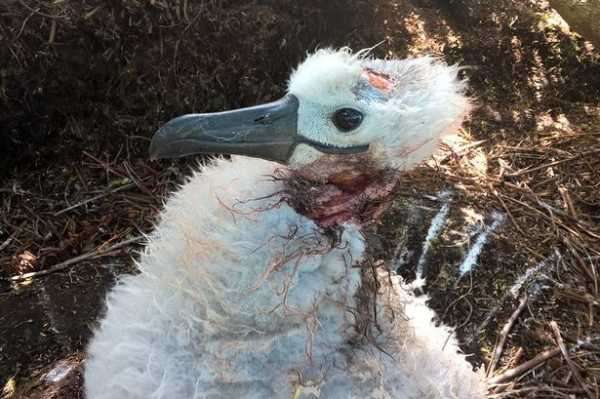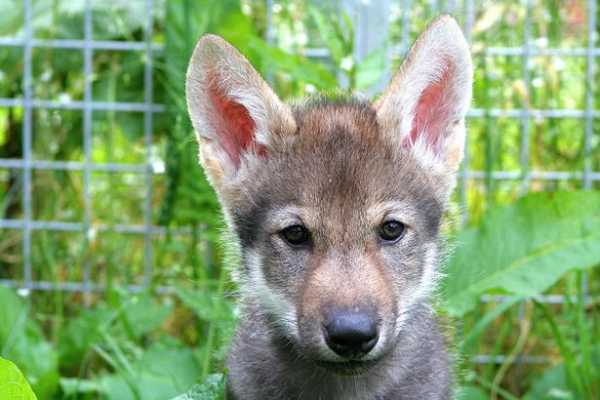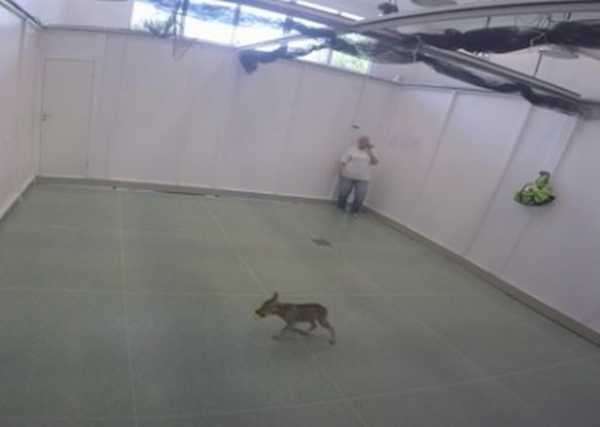Scientists made the findings unexpectedly when they tested 13 wolf puppies from three different litters to assess various behaviours in young dog puppies
-

Man catches huge spider dragging his pet goldfish out of pond with its fangs
-

Vet pulls huge pulsating parasite from kitten's nose in gruesome footage
-

Gangs of mice are attacking albatrosses and eating their chicks alive on remote island
Dogs are not the only ones who like to play fetch – wolf puppies are naturals at the game, according to scientists.
For some dogs it takes weeks to perfect fetching, but when it comes to the favourite canine game, wolf puppies appear to be naturals.
New research suggests the ability to interpret human social communicative cues that enables man's best friend to go for a ball and then bring it back also exists in wolves.
Scientists made the findings unexpectedly when they tested 13 wolf puppies from three different litters to assess various behaviours in young dog puppies.
During a series of tests, three eight-week-old wolf puppies spontaneously showed interest in a ball and returned it to a perfect stranger when encouraged.

Researchers said the discovery comes as a surprise because it had been hypothesised that the cognitive abilities necessary to understand cues given by a human, such as those required for a game of fetch, arose in dogs only after humans domesticated them at least 15,000 years ago.
Christina Hansen Wheat, of Stockholm University, Sweden, said: "When I saw the first wolf puppy retrieving the ball, I literally got goosebumps.
"It was so unexpected, and I immediately knew that this meant that if variation in human-directed play behaviour exists in wolves, this behaviour could have been a potential target for early selective pressures exerted during dog domestication."
Ms Hansen Wheat and her team raise wolf and dog puppies from the age of 10 days and put them through various behavioural tests to understand how domestication affects behaviour.

In one of those tests, a person the pup does not know throws a tennis ball across the room and, without the benefit of any prior experience or training, encourages the puppy to get it and bring it back.
The researchers never really expected wolf pups to catch on.
The first two wolf litters they worked with showed little to no interest in balls, let alone retrieving one.
But when they tested the third wolf litter, some of the puppies not only went for the ball but also responded to the social cues given by the unfamiliar person and brought it back.
Ms Hansen Wheat said: "It was very surprising that we had wolves actually retrieving the ball. I did not expect that.
"I do not think any of us did. It was especially surprising that the wolves retrieved the ball for a person they had never met before."
In the study published in the iScience journal, the researchers said similarities between dogs and wolves can tell us something about where the behaviour we see in our dogs comes from.
And while it was a surprise to see a wolf puppy playing fetch and connecting with a person in that way, Ms Hansen Wheat said it also makes sense.
Sourse: www.mirror.co.uk





